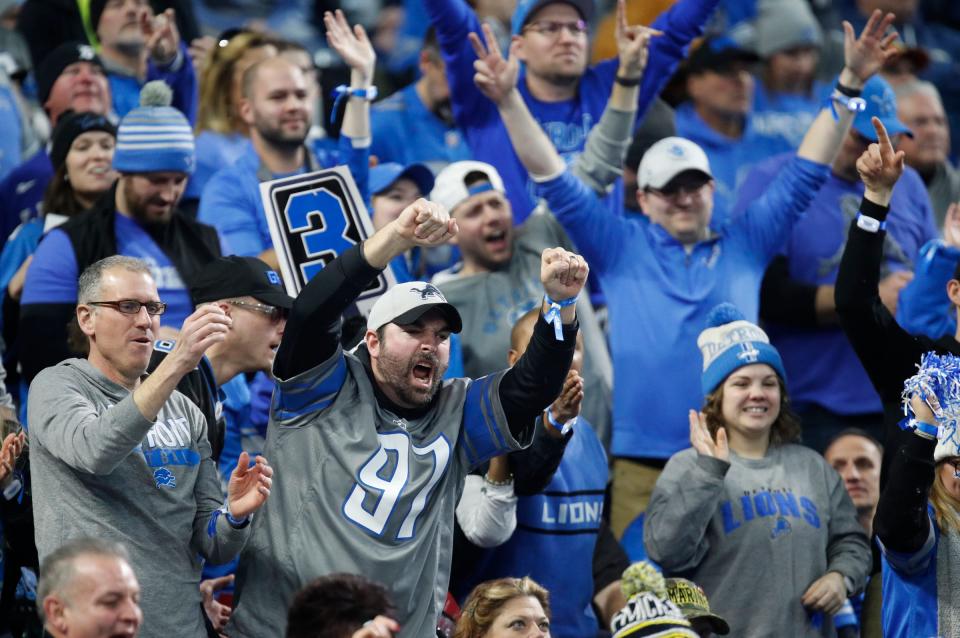Detroit Lions set decibel record at Ford Field, hitting ear-damaging levels: What to know
The roar of the crowd marks the thrill of a packed football stadium like we saw Sunday at Ford Field. But that deafening roar risks potential ear damage and hearing loss.
A historic game like the Detroit Lions' thrilling 24-23 win against the Los Angeles Rams brings a thundering commotion. Despite the excitement, this environment can pose significant harm to the hearing of fans, players and staff alike.
"People need to be aware that listening to loud sounds does have a potential long-term effect," said Thomas Powers, strategic advisor for Hearing Industries Association.
Ford Field registered 133.6 decibels at their highest during Sunday's game, a new stadium record according to multiple reports. Sound over 120 decibels can cause pain and ear injury, and risks hearing loss, according to the Centers for Disease Control and Prevention.
With NFL games typically lasting up to three hours or more, attendees get exposed to dangerously high noise levels for extended time periods. Repeatedly attending sporting events with harmful sound levels produces hearing loss, the CDC reported.
The Detroit Lions did not respond to a request for comment.

What decibel level is damaging to ears?
In recent years, NFL games across the nation have registered over 100 decibels, at which hearing loss can occur within 15 minutes, the CDC said. The current record stands at 142.2 decibels at the Kansas City Chiefs' Arrowhead Stadium, from a 2014 game. While the overall sound level is high, it varies throughout games.
"As the level rises and falls, potential damage is worse when the level is loud," Powers said.
Loud sound can damage sensitive parts of the ear and cause hearing loss, ringing or buzzing in the ear and increased sensitivity to sound, the CDC reports. Experts warn being in such loud environments frequently over the years risks permanent hearing loss.
"It's always a good idea to limit the loudness," Powers said.
Other common sources of loud noise exposure includes listening to music with headphones, movie theaters, gas-powered lawnmowers and concerts.
How to protect your ears
There are several practical steps attendees can take to reduce the risk of hearing loss at football games.
Experts recommend covering your ears with headphones, earbuds or earplugs to reduce the sound impact. While not blocking out sound completely, wearing these can reduce the surrounding noise, providing some hearing protection.
Though not yet widespread, parents often have their children wear ear protection at games, the HIA reported. Increasing the adoption of this tactic among adult attendees can help spread awareness of the risk of hearing loss and combat potential damage.
Sound-induced hearing loss can cause permanent damage, making it crucial to prevent repeated exposure to loud noises.
"Repeated exposure to loud noise over the years affects how well you hear later in life and how quickly you develop hearing problems, even after exposure has stopped," the CDC reported.
The Lions next play in the NFC Divisional Round against the Tampa Bay Buccaneers at 3 p.m. Sunday at Ford Field. Expect decibel levels similar to what we saw (and heard) Sunday vs. the Rams.
This article originally appeared on Detroit Free Press: Lions set decibel records at Ford Field, hit ear-damaging levels

